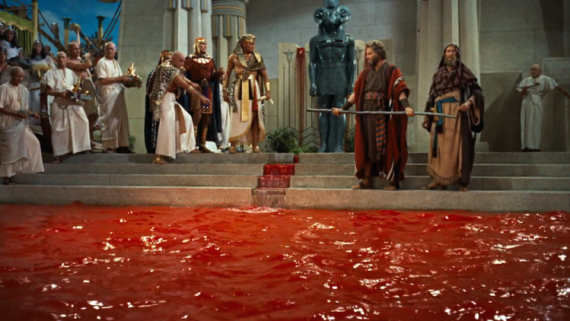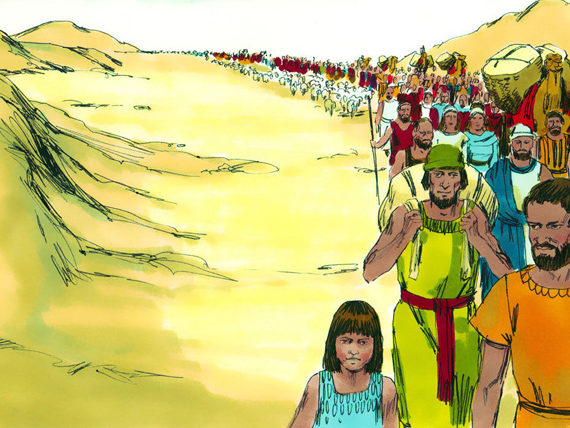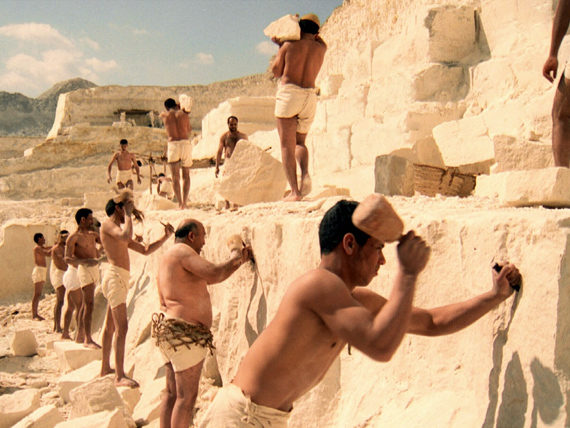1. Water turned to blood
The water did not turn into blood, it simply became red and resembled blood. The water can naturally turn red when the red soil of Ethiopia washes into it, or through an event known as red tide. Red tide is caused when a large amount of algae accumulates rapidly and release harmful toxins that discolor the water. In the cause of Ipuwer Papyrus, the red tide could have very easily been triggered by the eruption of Santorini.
The volcano was 500 miles north of the Nile delta but its eruption was large enough that its ash would have completely blocked out the sun above the delta plunging it into darkness. This would have been accompanied by the kind of unusual weather seen after volcanic eruptions, lightening and perhaps hail. This would explain two of the 10 plagues, darkness and hail.
2. Frogs
The contaminated water would have caused all the frogs to retreat to the dry lands of Egypt.
3&4. Lice & Flies
The rotting corpses of all the dead frogs and fish washing up on shore from red tide would obviously attract swarms of lice and flies.
5. All livestock were diseased
The abundance of lice and flies, along with the contaminated water and rotting frogs, would spread diseases and sicken the livestock.
6. Boils broke out
Again, disease will travel with flies, lice, and dead frogs lying around.
7. A hailstorm
As previously mentioned the eruption of Santorini would have caused this.
8. Locusts
A massive swarm of locusts is actually a regular thing in Africa and happens about once a year when water from the rare rainfall brings life to new vegetation. The locusts travel downwind and devour all the plant life on the way. These swarms are so massive it usually takes them three hours just to pass by. As recorded in the Encyclopedia Britannica, the swarm of locus in 1889 that flew across the Red Sea was 2,000 square miles in size.
9. A thick darkness
A swarm of locusts would have blocked out the sun and so would the eruption of Santorini.
10. Murdering of all firstborns
The Bible says every single firstborn son, who were too young to be guilty of any crimes, were killed in their sleep. This one actually did not happen, there is no record of such an event in Egypt’s history.





